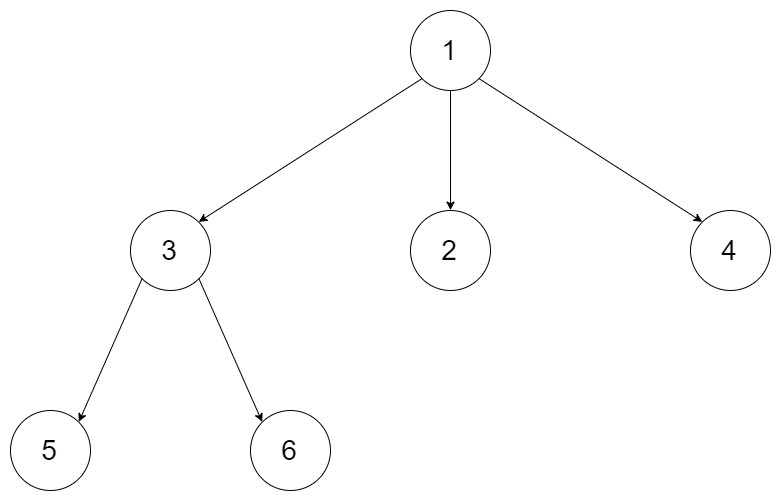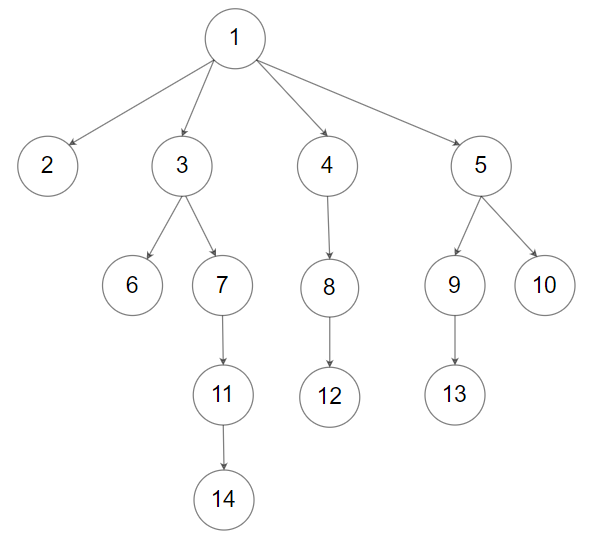590. N-ary Tree Postorder Traversal - easy
문제
Given an n-ary tree, return the postorder traversal of its nodes’ values.
Nary-Tree input serialization is represented in their level order traversal, each group of children is separated by the null value (See examples).
제한사항
- The height of the n-ary tree is less than or equal to 1000
- The total number of nodes is between [0, 10^4]
입출력 예

1
2
Input: root = [1,null,3,2,4,null,5,6]
Output: [5,6,3,2,4,1]

1
2
Input: root = [1,null,2,3,4,5,null,null,6,7,null,8,null,9,10,null,null,11,null,12,null,13,null,null,14]
Output: [2,6,14,11,7,3,12,8,4,13,9,10,5,1]
풀이
- Tree
1
2
3
4
5
6
7
8
9
10
11
12
13
14
15
16
17
18
19
20
21
22
23
24
25
26
27
28
29
30
31
32
33
34
35
36
37
38
39
40
41
/*
// Definition for a Node.
class Node {
public:
int val;
vector<Node*> children;
Node() {}
Node(int _val) {
val = _val;
}
Node(int _val, vector<Node*> _children) {
val = _val;
children = _children;
}
};
*/
class Solution {
public:
vector<int> postorder(Node* root) {
if(root == nullptr)
return {};
vector<int> item;
for(auto i = 0 ; i < root->children.size() ; ++i){
// 재귀로 Tree PostOrder 구현
auto temp = postorder(root->children[i]);
// 재귀적으로 PreOrder로 조회한 자식노드들을 현재 vector에 뒤에 붙임
item.insert(item.end(), temp.begin(), temp.end());
}
// 자식 노드를 모두 조회한 후, 현재 노드 조회
item.push_back(root->val);
return item;
}
};
